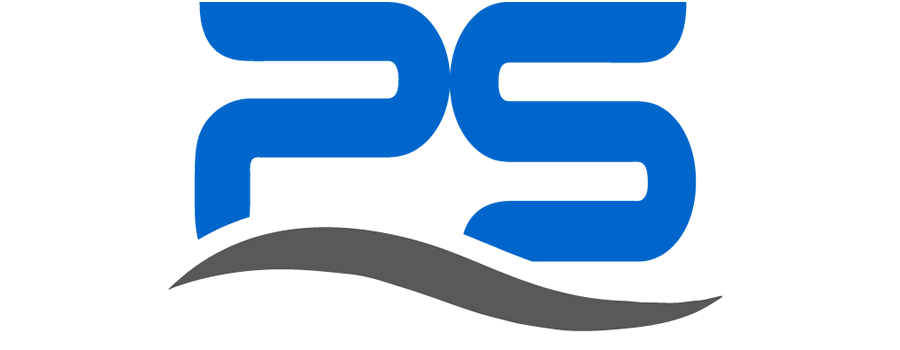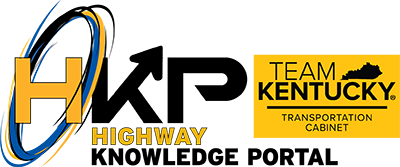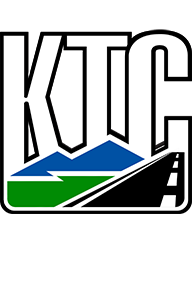Search for articles or browse our knowledge portal by topic.
Division of Professional Services

The Division of Professional Services has two primary clients —Project Managers (PMs) located in either the District or Central Office and KYTC user divisions. Consultants are its secondary clients. The Division helps control the project’s schedule, budget, and service quality. Its primary responsibilities include:
- Prequalifying consultants
- Drafting and advertising requests for proposals (RFPs)
- Managing the qualifications-based selection (QBS) process of consultants
- Scoping projects and negotiating fee proposal packages
- Writing contracts and modifications
- Processing invoices (including letter agreements and final pay estimates).
KYTC’s goal is to move from the request for proposals (RFPs) to the notice to proceed (NTP) in fewer than 100 days.
KYTC and the consultant industry share a common goal — successfully completing project work on schedule and within budget. It is only through strong cooperation, communication, mutual support, and a sense of trust and confidence that the two parties can achieve that goal. Both parties must actively work to build a strong, lasting relationship that will contribute to producing quality work that meets or exceeds the expectations and needs of KYTC and its customers — the traveling public and the citizens of Kentucky. Consultants offer specific resources and expertise that assist KYTC with delivering projects that provide a safe, efficient, environmentally sound and fiscally responsible transportation system that delivers economic opportunity and enhances the quality of life in Kentucky.
In accordance with Kentucky Revised Statutes (KRS) 45A (the Model Procurement Code), KYTC is authorized to contract for professional services. Any employee who plays a role in procuring professional services must comply with both the letter and the spirit of the following statutes:
- KRS Chapter 11A (Executive Branch Code of Ethics)
- Describes ethical standards required of those in the Executive Branch
- KRS 45A.340 (Conflicts of Interest of Public Officers and Employees)
- KRS 45A.800, KRS 45A.810, KRS 45A.825, KRS 45A.830, KRS 45A.835, KRS 45A.827, KRS 45A.807, and KRS 45A.050.
When handling procurement-related issue, all KYTC personnel must:
- Consider the interests of the Commonwealth of Kentucky and KYTC first when contracting for professional services
- Request and accept assistance from other KYTC and state personnel as required without allowing this to impair the dignity and responsibility of the employee’s position
- Seek to obtain the maximum value for each dollar spent for professional services
- Demand honesty and truth in contracting
- Reject all forms of bribery or favors
- Invite all professionals to submit their qualifications for consideration by KYTC
- Assist other KYTC personnel in the contracting for professional services as necessary
Professional Services maintains the integrity and transparency of selecting and managing consultants by ensuring all relevant laws are followed.
Before a consultant team responds to a Cabinet advertisement for professional services, it must meet KYTC’s minimum prequalification requirements for the professional engineering and engineering‐related services it wants to provide. If a consultant team does not meet the prequalification requirements it will not be considered for a contract.
Professional Services staff work with Cabinet subject-matter experts (SMEs) and coordinate with the consulting industry represented by ACEC-KY to establish descriptions and criteria for prequalification. Staff also ensure that that KYTC maintains a current list of prequalified consulting engineering firms and other professionals.
The Division of Professional Services website houses a current list of prequalified firms in 15 service areas (e.g., roadway design, geotechnical services) combining to a total of 78 prequalification services.
Prime consultants must also certify an annual Affidavit for Services – Campaign Finance Law Compliance Form, maintain Professional Liability Insurance not less than $1,000,000 and Workers Compensation and Employment Insurance policy.
KYTC uses consultants when the agency cannot perform work due to personnel being unavailable, time restrictions, or lack of specialized skills. Once a user division decides to utilize a consultant, the first step is to advertise with a Request for Proposal (RFP) issued by Professional Services. RFPs educate consultants about the scope and schedule of the advertised project(s) and are typically released on the second Tuesday of each month. Professional Services works with user divisions to create RFPs included in the bulletin, publicly posts the bulletins, coordinates Q&As about advertised bulletins, receives consultant proposals, and verifies compliance. It also helps KYTC meet disadvantaged business enterprise (DBE) goals when advertising for professional services and consultant selection.
Professional Services assists with traditional advertisements as well as phased advertisements. Traditional advertisements involve advertising for all the work required to complete the project and typically are used where the importance of schedule outweighs potential procurement losses. Phased advertisements procure first for preliminary engineering and environmental work and then can enter into a contract modification or readvertise for the final design. Phased advertisements are commonly used on larger or more complex projects. They have become standard for Professional Services due to efficiencies realized through the procurement process. Efforts by Professional Services have increased both the number of advertisements per year and the level of competition for each job.
Professional Services uses a qualifications-based selection (QBS) process. This process lets KYTC select the firm best qualified to the perform project work based on demonstrated competence and qualifications for the required type of professional services. The QBS process employs evaluation criteria such as:
- Relative experience of consultant personnel assigned to the project team
- Capacity to comply with the project schedule
- Past record of performance on projects of a similar type and complexity
- Project approach and proposed procedures to deliver the services
- Knowledge of the locality and familiarity of the general geographic area
- Special or unique expertise
- Special or unique equipment
- DBE Participation Plan

Professional Services works with the PM and the Division the consultant will work on behalf of (i.e., the user division) to recommend evaluation factors and assign relative weights to these factors. Evaluation factors and their relative weights must appear in the advertisement.
QBS is an approach to procurement that is endorsed nationwide and provides the best long-term value to the Cabinet. The fee for the service is managed independently of selection. It is not considered when choosing the most qualified firm. Since design costs are typically only 8% of total project budget, design quality can have a greater impact on total project budget.
Once the monthly Bulletin is finalized, Professional Services coordinates the selection process by establishing the selection committee, notifying members, conducting orientation training, and scheduling committee meetings. The selection committee then proceeds with the selection process. The selection committee has five (5) voting members:
- Two (2) professional engineers from the Secretary’s Pool. At least one must be a merit employee. The Secretary’s Pool has six (6) Cabinet professional engineers who voluntarily participate on the selection committee. These individuals apply and are selected by the Secretary for a two-year term. Two of the six individuals are randomly selected to participate on each project selection committee.
- Two (2) professional engineers from the user division, typically from the division or a representative from the district office. If KYTC advertises for non-engineering professional services, merit employees familiar with and experienced in the services can be appointed.
- One (1) member from the Governor’s Pool. The Governor’s Pool has three (3) individuals selected by the governor from nominations received by the Kentucky Society of Professional Engineers and the American Council of Engineering Companies of Kentucky. These members cannot be employees of the Executive Branch of state government.
- Other members of Professional Services or the User Division may also attend selection meetings or any necessary interviews. All attendees not included on the selection committee or within Professional Services must be dismissed prior to voting.
- A merit employee from the Office of the Auditor of Public Accounts may serve as a non-voting member of the committee.
Red Flag
Professional Services schedules the two selection committee meetings. Each meeting’s activities are defined in the table below.
| Professional Services Committee Meeting Activities | ||
| Meeting | Activities | |
| Initial Meeting |
|
|
| Final Selection Meeting |
|
|
Before the final selection committee meeting, each voting committee member must review all responses. Using the weighted evaluation factors from the advertisement, committee members develop a preliminary evaluation and numerically rate each firm. These evaluations and ratings are considered preliminary and confidential working documents. They are not made available to the public. In executive session, selection committee members discuss the responses and their evaluations and ratings. Using the weighted evaluation factors from the announcement, the committee determines the three (3) best qualified firms and establishes a ranking.
Consultants may request a debriefing with the selection committee so they can determine how to improve their proposals for future advertisements. Professional Services coordinates and manages any requested debriefings.
Professional Services adheres to policies in KRS 45A when it negotiates with a consultant and establishes a contract. The Cabinet attempts to negotiate fair and reasonable prices for all services.
Professional Services and the PM arrange a pre-design conference or contract scoping meeting. Appropriate SMEs are invited as the conference represents an opportunity for KYTC and the consultant to establish a scope, agree on work units and a schedule, and communicate expectations. Key conference activities include:
- Reviewing project data to refine the purpose and need
- Reviewing the consultant’s scope of work
- Discussing proposed work units for the consultant contract
The consultant is responsible for drafting meeting minutes, which must be ratified by attendees. A template for taking conference minutes is available on the Division of Professional Services website.
The consultant submits to Professional Services and the PM information on work units, production hours, and the fee proposal. Each task required to deliver the project is defined in terms of a unit of measurement (e.g., linear feet, number of occurrences). Each discipline has a list of standard tasks associated with performing work. The Division of Professional Services website has production hour worksheets and descriptions available for several disciplines. The PM can also work with division SMEs to develop work units for their project needs.
Red Flag
Each KYTC division involved in the project prepares independent production hour estimates. For example, the Division of Traffic generates production hour estimates for striping and signing plans, signal plans, and lighting plans. Professional Services (a) coordinates with the PM and the user division to ensure estimates are completed and (b) gathers production hour estimates from each Division involved in the project.
Professional Services compares the consultant’s proposed fee with KYTC’s estimate to (a) determine if the fee is reasonable and (b) identify areas of substantial difference that may require further negotiation. If needed, Professional Services facilitates production-hour negotiations between the consultant and user divisions. Professional Services also verifies fee proposal rates, percentages, and direct costs. Once an agreement is reached on production hours, the Division of Professional Services verifies and finalizes the fee proposal.
If Professional Services cannot negotiate a satisfactory contract with the top-ranked consultant, it terminates negotiations. The division then requests a proposal and fee estimate from the second-ranked consultant. If this proves unsuccessful, it requests a proposal and fee estimate from the third-ranked consultant. If negotiations with the third-ranked consultant fail, KYTC determines whether to re-advertise. However, being unable to retain the top-ranked consultant is an extremely rare occurrence.
Once the fee estimate is agreed to, Professional Services prepares an agreement or contract that describes:
- Scope of services to be provided
- Method and amount of payment
- Time for completion
- Deliverables and milestones
- Special provisions
The contract must be approved and signed by the Secretary of Transportation. KYTC then encumbers the funds and submits to the consultant a notice to proceed to indicate the consultant may begin work and bill for services. It is also reviewed by the LRC Government Contract Review Committee to verify it is acceptable.
Red Flag
The operating margin (profit) for a lump sum contract cannot exceed 15% when the total direct labor costs plus overhead cost for a contract are less than $2 million. If the labor (direct and indirect) of a contract exceeds $2 million, the operating margin drops to 10%.
Professional Services has implemented an electronic consultant portal to expedite the professional services process. The portal is used for:
- Prequalification submittals and approvals
- Advertisement approval workflow
- Electronic consultant responses
- Estimate submittals and negotiations
- Contract approval workflows
Adoption of the consultant portal has helped KYTC meet its goal of having fewer than 100 days elapse between advertisement and issuing the NTP.
During a project, the consultant must submit a CMR (Consultant Monthly Report) detailing progress billings as agreed upon in the contract. Before issuing a partial or final for payment, KYTC reviews the firm’s work, including any progress or final reports to ensure that the firm (a) has completed the work for which it has requested payment and (b) has satisfactorily followed the terms and conditions of agreement. Professional Services provides technical and administrative support for the PMs and consultants on partial consultant payments to ensure timely payments. Professional Services is primarily responsible for reviewing and processing partial and final payments for statewide on-call letter agreements as well as final payments for all contracts. The Division also tracks funding sources and contract limits on statewide contracts.
Professional Services assists with the closeout and final pay estimate. For projects with construction lettings, the closeout process typically begins when the construction contract is awarded. On projects with different final deliverables (e.g., bridge inspections), the closeout process begins with the agreed-upon final submittal. The Division also monitors the project’s eMARS status and determines when the project should be closed or if a time extension is necessary.
Once the project is complete, the Consultant PM submits the final invoice to KYTC Highway Design for approval. The KYTC PM reviews and submits final pay estimates to Professional Services using the Engineering and Engineering Related Services Pay Estimate TC 40-408 form. If remaining encumbrances are not spent, the consultant should formally note that all work is complete and that no additional changes will be made. For example, if a project’s geotechnical work is not billed at 100 percent in a lump sum contract, a copy of the final geotechnical project charges and work performed should be submitted with the invoice.
Professional Services created the following checklist for closing out a consultant contract.
| Checklist for Closing Out a Consultant Contract | ||
| Criteria | Complete? (Y/N) | |
|
All work has been accomplished
• Determination made by the PM and/or location engineer after conferring with all appropriate Central Office divisions (e.g., Highway Design, Structural Design, Environmental Analysis, Geotechnical Branch). |
|
|
| Incomplete consultant contract modifications |
|
|
| All necessary consultant evaluations |
|
|
| Audit of cost-plus contracts by Division of Professional Services |
|
|
| All payments processed |
|
|
Also see:
Administration of Consultant Contracts – 01 Managing Consultant Contracts
Administration of Consultant Contracts – 02 Selecting a Consultant
Administration of Consultant Contracts – 03 Understanding a Consultant Contract
Administration of Consultant Contracts – 04 Utilizing Statewide Consultant Contracts
References:
Technical Support Resources Knowledge Book:
Access the complete Knowledge Book here: Technical Support Resources Knowledge Book
Next Article: Division of Construction Procurement
Previous Article: Right of Way & Utilities

